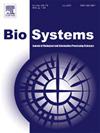Towards a Possible Definition of Consciousness
IF 1.9
4区 生物学
Q2 BIOLOGY
引用次数: 0
Abstract
There is no consensus about what cognition and its emergent form, consciousness, are. Yet this article proposes a new definition of consciousness. As many researchers, philosophers and other thinkers believe that life means cognising, this new definition of consciousness stems from a generalisation of the existing definition of life which postulates that Life is a far from equilibrium self-maintaining chemical system capable of processing, transforming, and accumulating information acquired from the environment. The new definition includes the thermodynamical aspect as a far from equilibrium system and considers the flow of information from the environment to a conscious system. The new definition of consciousness presented herein is formulated in a minimal manner; simultaneously, it is general enough to cover all emergent forms of cognition, e.g. thinking and rationality. The newly formulated definition states that Consciousness is an emergent property of a far from equilibrium system of quantum particles sustained by an autopoietic system and capable of processing, transforming, and accumulating information acquired from the environment. The newly proposed definition of consciousness may be of interest to cognitive and computer sciences – and even to the development of artificial intelligence. Furthermore, it presents a possible solution to Chalmers’ hard problem of consciousness. This article discusses a possible generalisation by introducing quantum particles to the definition of life stated herein, refining it into a broader concept: Life is a far from equilibrium self-maintaining system of quantum particles capable of processing, transforming, and accumulating information acquired from the environment.
走向意识的可能定义
关于什么是认知和它的浮现形式——意识,还没有达成共识。然而,本文提出了意识的新定义。正如许多研究者、哲学家和其他思想家所相信的那样,生命意味着认知,这种意识的新定义源于对现有生命定义的概括,该定义假定生命是一个远离平衡的自我维持的化学系统,能够处理、转化和积累从环境中获得的信息。新的定义包括热力学方面作为一个远离平衡系统,并考虑信息流从环境到一个有意识的系统。这里提出的意识的新定义是以一种最小的方式表述的;同时,它的普遍性足以涵盖所有涌现的认知形式,例如思维和理性。新定义指出,意识是由自创生系统维持的远离平衡的量子粒子系统的一种涌现特性,能够处理、转化和积累从环境中获得的信息。新提出的意识定义可能会引起认知科学和计算机科学的兴趣,甚至会引起人工智能的发展。此外,它还为Chalmers的意识难题提供了一种可能的解决方案。本文通过将量子粒子引入本文所述的生命定义,讨论了一种可能的概括,并将其提炼为一个更广泛的概念:生命是一个远离平衡的自我维持系统,该系统由量子粒子组成,能够处理、转换和积累从环境中获得的信息。
本文章由计算机程序翻译,如有差异,请以英文原文为准。
求助全文
约1分钟内获得全文
求助全文
来源期刊

Biosystems
生物-生物学
CiteScore
3.70
自引率
18.80%
发文量
129
审稿时长
34 days
期刊介绍:
BioSystems encourages experimental, computational, and theoretical articles that link biology, evolutionary thinking, and the information processing sciences. The link areas form a circle that encompasses the fundamental nature of biological information processing, computational modeling of complex biological systems, evolutionary models of computation, the application of biological principles to the design of novel computing systems, and the use of biomolecular materials to synthesize artificial systems that capture essential principles of natural biological information processing.
 求助内容:
求助内容: 应助结果提醒方式:
应助结果提醒方式:


